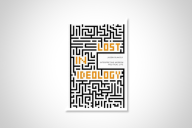You have /5 articles left.
Sign up for a free account or log in.
Intellectual Affairs has been running for just over a month now. It might be a good moment for a bit of housecleaning.
Readers have contacted me about some interesting developments apropos Ayn Rand, Jacques Derrida, and the history of academic freedom -- so today's column will have the element of variety going for it. Consider it a roundup of faits divers. After all, that sounds a lot more sophisticated than "news in brief."
Referring to the followers of Ayn Rand as "Randroids" was probably not the nicest way to celebrate the 100th anniversary of the author's birth. But it was positively kind by contrast with the really strange honor being paid to her soon by her devotees. They are all set to publish a volume that will document, at great length, how Rand coped with a private, and fairly humiliating, part of her life.
First, a little Objectivist history:
In 1968, the world of Rand's followers -- which included quite a few academics, as well as a young economist by the name of Alan Greenspan -- was shaken by the news of a split between Rand and her most famous disciple, Nathaniel Branden, the psychologist best known for giving the expression "self-esteem" its current inescapable popularity.
There had been a romantic liason between the author of The Fountainhead and the psychologist, who was 25 years younger. When Branden declined to continue the relationship, he and his wife Barbara were read out of the movement.
Many of the details later became available in The Passion of Ayn Rand, a biography by Barbara Branden. And they were confirmed by Branden's memoir, Judgment Day. (Long before their books appeared in the late 1980s, the couple had divorced.) In 1999, the complicated Objectivist menage was dramatized in a steamy (yet also not-so-hot) docudrama for Showtime also called The Passion of Ayn Rand. A better title might have been Atlas Shagged.
In any case, the story will now be told again in the pages of a new book drawing on Rand's notes. For years after the split, Rand sought to dissect the "psycho-epistemology" of the Brandens -- in short, hundreds of pages of brooding over a failed love affair. The book is authorized by the Ayn Rand Institute, which holds her papers, the official and "orthodox" wing of her Objectivist movement.
Perhaps the most incisive comment on the volume comes from Chris Sciabarra, author of Ayn Rand: The Russian Radical and other studies. "Reading Rand's personal journal entries makes me feel a bit uneasy," he recently wrote in an online forum. "As valuable as they are to me from an historical perspective, I suspect there might be an earthquake in Valhalla caused by the spinning of Ayn Rand's body."
The Passion of Ayn Rand's Critics (Durban House Publishing) was originally scheduled to appear in time for the centennial of her birth, in early February. Its appearance has been bumped back. Expect an earthquake in Valhalla sometime this spring or early summer.
The editing and translation of posthumous works by Jacques Derrida will be a cottage industry. And pity the fool who takes on the job of preparing a definitive bibliography.
It was with a sense of tempting fate that, in a recent column, I described the book now available in English as Rogues as the last book Derrida saw through the press during his lifetime. Anthony Smith, a sharp-eyed undergraduate at DePaul University, points out that a few months later Derrida published a volume with better claim to that distinction.
It is called Béliers: Le dialogue ininterrompu entre deux infinis, le poème. Through a little digging, I've learned that it has been translated as "Rams: Uninterrupted Dialogue -- between Two Infinities, the Poem," and will appear in a forthcoming volume of Derrida's essays on Paul Celan, the great Romanian-Jewish poet (and concentration camp survivor) who wrote in German. (Let me tempt fate again by guessing that the "rams" in Derrida's titles is an allusion to the Shofar).
Derrida first presented Béliers in Heidelberg in February 2003, as a memorial tribute to Hans-Georg Gadamer. The German philosopher, author of Truth and Method, had died the previous year at the age of 102. "Will I be able to testify, in a way that is right and faithful, to my admiration for Hans-Georg Gadamer?" asks Derrida.
Good question! I can't wait to find out. For one thing, it's news to hear that Derrida admired Gadamer. In 1981, when colleagues arranged for them to meet and discuss one another's work at the Goethe Institute in Paris, their exchange left Gadamer feeling (if one may translate freely from a more refined philosophical idiom) "pissed, dissed, and dismissed."
By 1992, Gadamer was still complaining that Derrida was "not capable of dialogue, only monologue." But perhaps that made the eulogy all the more eloquent. After all, Derrida did get to have the last word.
Finally, a correction to the recent column celebrating the anniversary of Richard Hofstadter and Walter Metzger's The Development of Academic Freedom in the United States, first published in 1955. The work was, I wrote, "long since out of print."
Well, that was at least half right. In 1996, Transaction Publishers reissued the first part of the book as Academic Freedom in the Age of the College, by Richard Hofstadter, with an introduction by Roger L. Geiger, who is distinguished professor of higher education at the Pennsylvania State University.
In his introduction, Geiger pays tribute to Hofstadter's gifts as both a historian and a writer, while pointing to some elements of his research that haven't held up too well. For example, Hofstadter overestimated how many colleges founded before the Civil War ended up failing. The problem was that his data set included institutions that never opened, or just served as secondary schools.
Until the late 19th century, very few American institutions of higher learning bore much resemblance to the contemporary research university. By e-mail, I asked Geiger how much contemporary relevance Hofstadter's study might have.
The project, Geiger wrote back, "was commissioned and written with the conviction that it was very relevant to contemporary America, circa 1955. Hofstadter, in particular, seemed to equate the ante-bellum evangelical colleges with the kind of xenophobic populism that seemed to support McCarthyism."
Actually, my question was about our contemporary situation, not Hofstadter's. But sometimes you have to wonder if that's too fine a distinction.
And a plea to you, dear reader. Please drop a line if you hear an interesting conference paper, or read an impressive (or, for that matter, atrocious) article in a scholarly journal. Should there be some earth-shattering, or at least profession-rocking, discussion taking place on a listserv, please consider passing that news along.
That's not really a call for gossip -- though, of course, if you have any, I'm all ears (as Ross Perot once put it, in a different context).
The simple fact is that the audience for Inside Higher Ed is self-selecting for intelligence. And you aren't reading this site because you have to, but because you want to. So you've got good taste as well. The really interesting developments in scholarly life tend to occur well below the radar of the academic presses, let alone the administration. I'd rather hear from one graduate student or adjunct with a finger on the pulse of her discipline than go to dinner with a provost who has an expense account and no clue.
Well, that probably sounded ruder than it should have. But you get the idea. We're not standing on ceremony here. This column is run "cafeteria style," or in the spirit of the coffee houses of Vienna from a century ago. If I'm missing something important, please don't hesitate to say as so.








